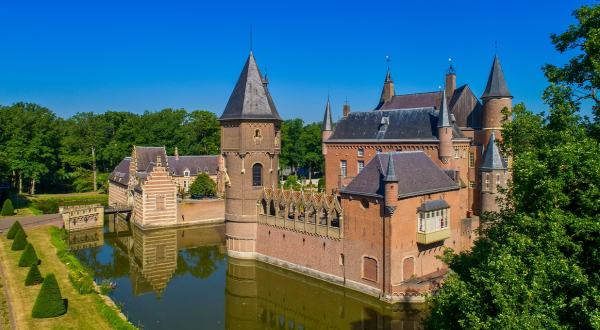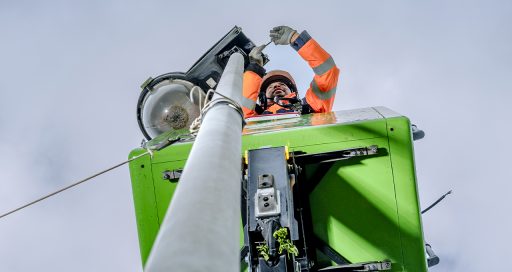Periods of drought are regular events in Portugal. To preserve water resources, VINCI Energies is recovering water from Faro Airport’s heating and climate control system and reusing it in cleaning operations.

Portugal regularly experiences periods of drought, particularly in its southern regions. As a result, surface water reserves and water tables are at extremely low levels, increasing the risk of public water supply shortages.
In Faro, in the Algarve, the region worst affected by recent droughts, VINCI Airports manages the city’s airport, one of ten it is responsible for in Portugal. Meanwhile, VINCI Facilities Portugal is responsible for maintenance of the airport’s passenger boarding bridges, as well as those in Lisbon and Porto. “As a responsible company, we have a duty to reduce water use in our activities,” emphasises André Parente, Director at VINCI Energies Portugal.
Treating and reusing condensates
For example, the condensed water that drains from climate control units in the airport buildings, which previously ran onto the ground or into drains, is now collected, and reused following treatment to eliminate any biological contaminants present in these HVAC (heating, ventilation and climate control) condensates. This helps reduce both environmental pollution and energy consumption by the airport buildings.
“To begin with, we were collecting the water in a 20-litre container,” says André Parente. “But we soon realised that would not be enough. In collaboration with our customer Faro Airport – ANA Aeroportos de Portugal, we installed tanks next to each of the six boarding bridges. With this solution, we now collect around 2,600 litres of water a week, an average of 433.3 litres per bridge. In 13 weeks, we have collected 33,800 litres.”
“By reusing condensates from HVAC systems, we can reduce the quantity of water resources extracted from watercourses and aquifers”
The recovered water is reused for airport equipment maintenance, including cleaning operations: washing exterior walls, and the floors and windows on the boarding bridges. It can also be used to water the site’s indoor and outdoor plants.
“In time, by increasing our collection capacity, we will be able to share this water with other providers and customers, and so reduce the amount of potable water used,” says André Parente.
A scalable initiative
One benefit of an approach like this is its low cost, which boils down to the installation of collection tanks and a pipe system. “Treating HVAC water has a small environmental footprint and requires very little in the way of on-site work,” says André Parente.
“By reusing this water, we can reduce the quantity of water resources extracted from watercourses and aquifers even as demand increases. This safeguards our water resources and the animal life that depends on them for survival.”
The next step for VINCI Facilities Portugal, in collaboration with Faro Airport, will be to connect the six collection tanks alongside the sky bridges to a central reservoir. This will make it possible to store more water from condensation and have a single delivery point to manage, rather than the current six.
André Parente concludes that “Drawing on our experience and the adjustments we have made, we could extend this solution to other customers and other airports in the VINCI Airports group.”
01/16/2025





